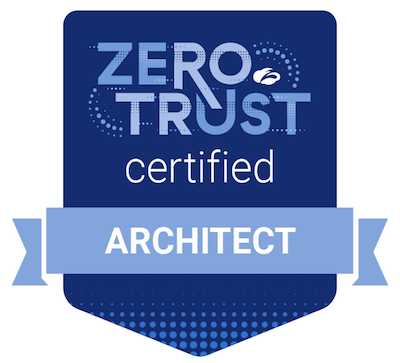An increase in large-scale cyber attacks has driven widespread interest for organizations to migrate to a Zero Trust architecture. A Zero Trust architecture is a new, clean architectural paradigm - one that is built to reduce a network's attack surface, prevent lateral movement of threats, and lower the risk of a data breach. This new Zero Trust architecture is based on the core tenet of Zero Trust, in which implicit trust is never granted to any user or device. The Zero Trust security model puts aside the traditional "network perimeter" built with firewalls and VPNs - inside of which all devices and users are trusted and given broad permissions by putting them on a routable network. A Zero Trust architecture eliminates the biggest problem associated with routable networks - lateral threat movement - by preventing access to the network, period.
As Zero Trust became popular, the term was hijacked, with every vendor claiming to have a Zero Trust architecture. This is causing widespread confusion for customers and partners. A Zero Trust architecture is a new architecture, and cannot be bolted onto a traditional legacy-based approach. While it’s becoming more widely understood that legacy network-based firewall and VPN models simply cannot protect today’s modern cloud-first and hybrid working enterprise, one of the major pain points that IT and security operators are facing today is a skills gap, both in terms of (a) understanding what is true Zero Trust and how it contrasts with a legacy firewall and VPN-based approach, and (b) learning how to actually implement a Zero Trust architecture. Modern security teams need a specialized set of skills - one that isn’t based on 30 years of legacy networking and security principles - in order to address today’s cloud-first security requirements.

To provide the necessary skills required for network and security professionals interested in building a holistic security approach based on Zero Trust principles, Zscaler is introducing the Zero Trust Certified Architect (ZTCA) program. This advanced certification program is designed to provide a comprehensive overview on the fundamentals of a Zero Trust strategy along with practical guidance for the planning, design, implementation and maintenance of a Zero Trust architecture. The course follows NIST’s Zero Trust guidelines, and directly compares and contrasts a Zero Trust architecture with the legacy routable networks and firewall- based approach. We’ve designed the course to help the learner be clear on the pitfalls of a legacy-based architecture, and understand how to implement true Zero Trust. Developed to be relevant and useful in today’s dynamic security environment, the curriculum features custom content that specifically addresses the needs of modern enterprises to secure their hybrid workforce and cloud-based data, applications, and workloads.
When I speak with CXOs, they always tell me that the “people element” is the most important part of any digital transformation journey. And it’s no secret that the competition for talent within the IT and security industries continues to be fierce, so we’re pleased to be able to provide a means for network and security professionals to differentiate themselves, while acquiring the necessary skills to lead their organizations’ secure digital transformation.
For more details on this exciting new certification program, please visit the ZTCA site.






